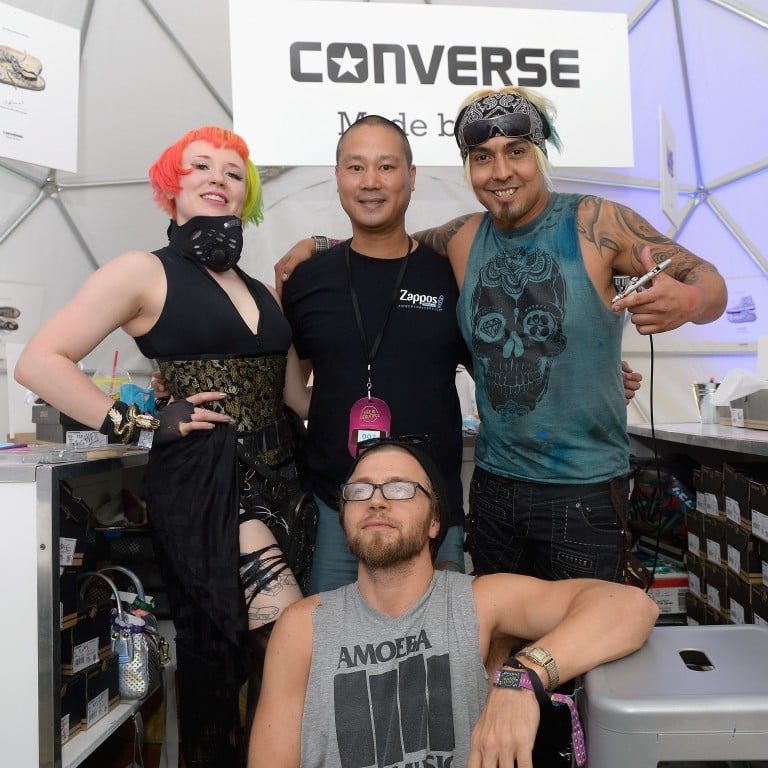
Zappos’ Tony Hsieh and his last months: drink, drugs and a quest for world peace
- The internet’s ‘shoe king’, Tony Hsieh, the former CEO of e-commerce giant Zappos, exhibited increasingly erratic behaviour before his death in November
- He had been building a visionary, if eccentric, community in America’s Park City, the full scope of which is not clear and may never be
A fire truck and an ambulance whirred into one of the classier enclaves of Park City in the US state of Utah the evening after Labour Day on September 7, summoned to action by an alarming report.
At a nine-bedroom estate, recently bought by a newcomer to the picturesque ski town, there were “flames shooting into the air” and a hot-air balloon was “going off”, according to the fire department‘s logs.
It is not clear if something had gone wrong with the balloon, or what it was doing at the residential property on a Tuesday night – the report only notes that no one required medical attention and that emergency responders left after 45 minutes.
But five nights later they were back again, this time for reports of an “illegal burn” at the mansion, where they discovered propane heaters hidden in trees and a large stash of wood intended for an open fire. The mansion belonged to Tony Hsieh, the long-time CEO of e-commerce powerhouse Zappos, an online shoe and clothing retailer.
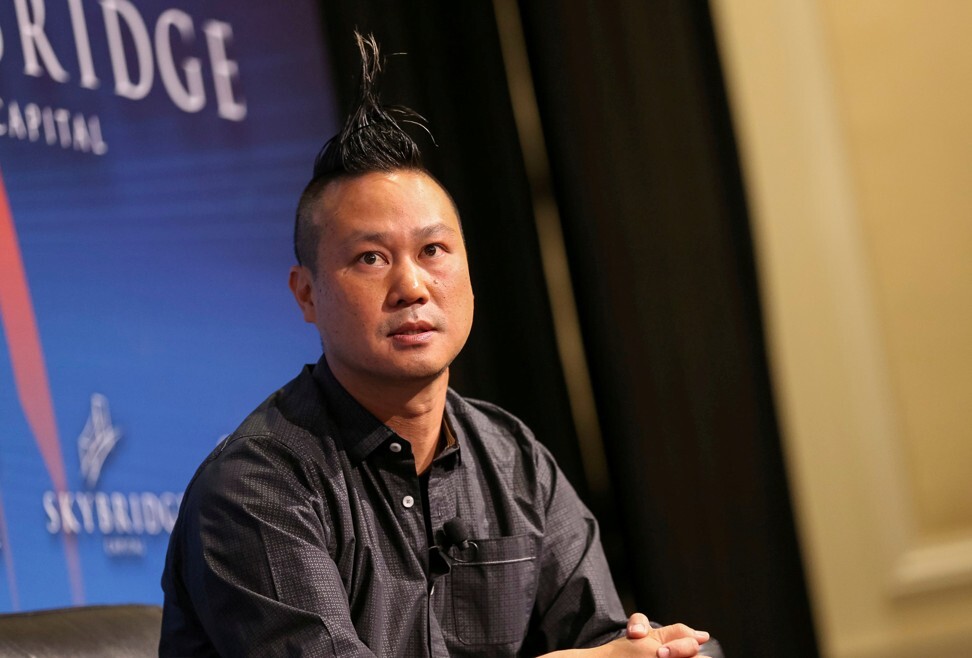
For a period of several months during the summer of 2020, Hsieh’s property was the site of extravagant parties that drew a crowd of techies, free-spirits, hangers-ons and locals – and often complaints from neighbours.
There was music, free-flowing booze, food prepared by private chefs, and usually some kind of pyrotechnics. Special machines for revellers to take rapid Covid-19 tests were conveniently stationed throughout the property, a reminder of the pandemic that had turned so much of the world upside down during a momentous year for the fast-living internet mogul.
Hsieh, who was born in the US state of Illinois to parents from Taiwan, began a Park City real estate buying spree in March, purchasing the mansion he lived in and gradually adding more than a dozen nearby multimillion-dollar properties.
The famously generous and pensive tech exec was a lifelong believer in cultivating communities where entrepreneurialism, the arts, spirituality and good-living flourished side-by-side.
Hsieh had spent the past decade doing exactly that in Las Vegas, turning the city’s downtown into an entrepreneurial playground while simultaneously steering Zappos – which had been acquired by Amazon in 2009 for US$1.2 billion – to ever-greater success. The adventure in Park City had all the earmarks of being another one of Hsieh’s eccentric, but visionary projects.
Tony Hsieh’s death ruled ‘accidental’ as house fire investigated
Tributes to the beloved philosopher-founder of the internet retailer, whose bestselling book Delivering Happiness described Hsieh’s path to success, have poured out across social media feeds in the days since his death. But privately, many of Hsieh’s close friends are ruminating over the final months of his life, re-examining the turbulence and drug abuse, and wondering if the seeds of the tragedy in Connecticut were planted in Park City.
Hsieh had stepped down abruptly from Zappos in late August after 20 years, making no public statements about his departure. In Park City, he flitted erratically between ideas, discussing plans to establish a single time zone for the entire world, touting an initiative to create a minute of world peace by distracting everyone on the planet, and telling one friend that he was training to climb Mount Everest by inhaling hits of nitrous oxide gas.
‘I’m proud to call myself a whore’: Singaporean sex worker reveals all
He also continued to display his trademark kindness and largesse, helping local businesses survive the economic impact of the pandemic and paying for everything from housing to tee times for his Park City friends.
While Hsieh was surrounded by an entourage of fellow travellers, many of whom he paid to join him in Utah, he was isolated from some of the most important people in his life. Long-time friends of Hsieh’s struggled to stay in touch amid the travel restrictions of the pandemic and a digital detox in which Hsieh temporarily forswore electronic devices.
Perhaps most ominously, Hsieh would sometimes sit alone next to bonfires on his private lakefront beach amid gatherings. As his guests ate dinner cooked by his chefs, recalled one acquaintance, Hsieh would throw candles into the flames to watch them explode.

The Hsieh family declined to comment for this story, issuing a statement in response, which read, in part:
“Instead of being distracted by the events that lead to Tony‘s death, we, as a family, are focusing on ways to carry on his legacy with the support of the world and those who loved him.
“Tony was extremely accomplished in both his personal and professional lives, but as parents we are most proud of how he turned out as a human being. He had true compassion and an endless desire to elevate everyone around him. He would often refer to himself as the caboose [the car at the end of a freight train], because everyone else came first.
Why Amazon is failing to sell luxury fashion but Alibaba is succeeding
“We hope to carry on his legacy by spreading the tenets he lived by – finding joy through meaningful life experiences, inspiring and helping others, and most of all, delivering happiness.”
The internet’s “shoe king” spent some of his last months in Park City barefoot, on walks and hikes.
“I will never forget Tony leading us up on a hike one evening barefoot, climbing up the mountain walking faster and more sure-footed than anyone else,” said Eric Litman, an entrepreneur new to Hsieh’s circle who spent weeks this summer in the Park City community.
The hikes were part of the camp-like vibe at Hsieh’s Park City project, where a rotating group of guests could stay for days or weeks. It was the same playbook Hsieh used in Las Vegas, except that instead of staying in Airstream trailers, Park City guests settled into posh, multimillion-dollar ski chalets.
I always felt that Tony was a futurist and always saw 20 years ahead. I have no idea what he was doing, but I’m sure people will come to understand, in 20 years, that it makes perfect sense
Hsieh was interested in investing in Litman’s stealth start-up after a mutual friend introduced them. During their first Zoom chat in early summer, Hsieh sat “cross-legged, munching on grapefruit slices in water”, explaining his vision for a company in Park City. Litman flew in from New York for a week-long visit and later returned for several more weeks.
The full scope of Hsieh’s Park City ambition is not clear and may never be. Hsieh had tapped Suzie Baleson, who owned a company focusing on high-end travel and wellness, to be his Park City business manager. Baleson declined to comment.
There was an idea for a tourism and hospitality business called 10X, intended to launch first in Park City and then expand. One vendor told The New York Times that the business would be a membership club, “to bring creative people and young entrepreneurs to Park City”.
Hsieh’s vision for 10X also included kids’ camps for coding, painting, horseback riding and other activities. And he was planning other efforts, like building a stage at his home where he could put on a TEDx series for the public.
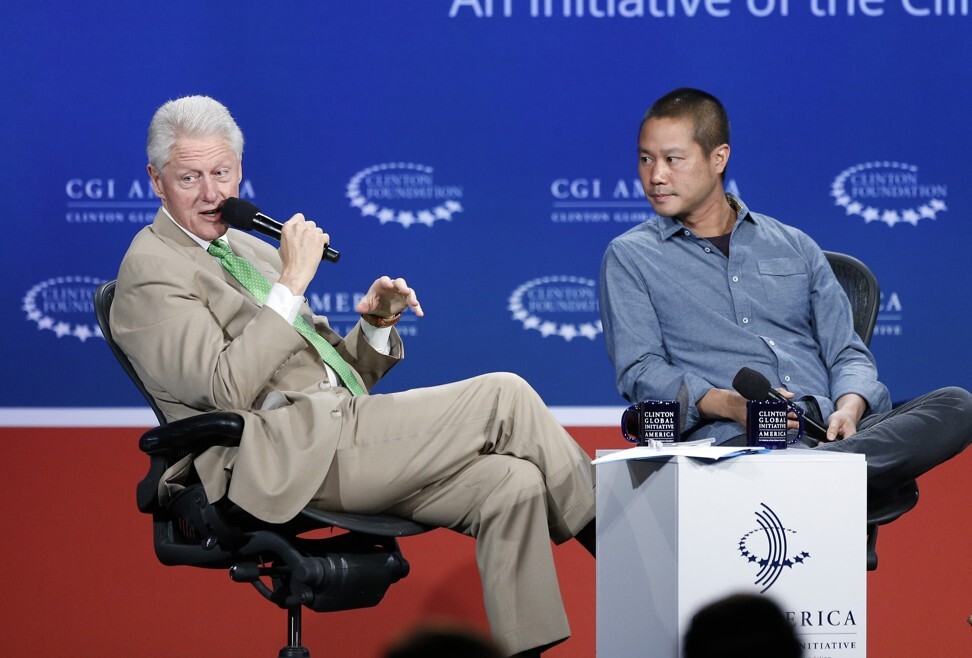
But the vision was less important than the visionary.
Amanda Slavin, a long-time friend and mentee, spoke to Hsieh during the beginning of the pandemic when she had a new baby. She said after his death that she didn’t know much about his plans in recent months.
“I always felt that Tony was a futurist and always saw 20 years ahead,” she said. “I have no idea what he was doing, but I’m sure people will come to understand, in 20 years, that it makes perfect sense.”
One acquaintance of Hsieh’s in Park City, who we’ll call “Sarah” because she wished to remain anonymous, described an all-expenses-paid, resort-like community.
“I was there for two weeks. I probably spent US$10,” she said. Dinners, group activities and housing were all on Hsieh’s dime.
Hsieh offered to pay Sarah and her friends more than double their monthly salary to work on putting his 15,000-square-foot (1,400-square-metre) home off the grid next year, an offer they gladly accepted.
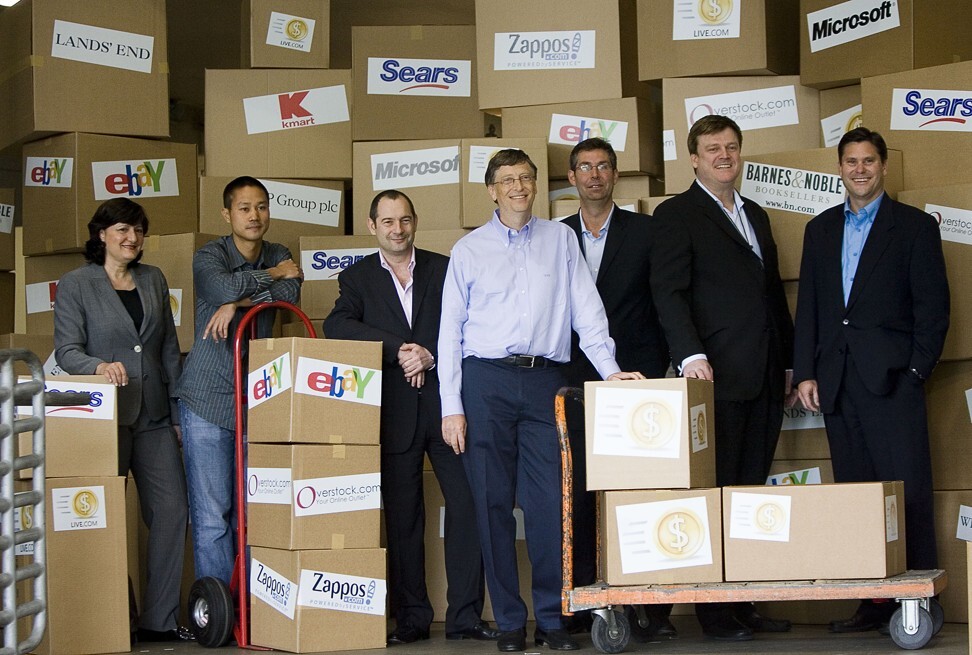
The community of 30 to 40 people were largely new Hsieh contacts – although old friends like Daniel Park, a Vegas musician, came to visit too. The group ranged from 18-year-olds to families with kids – Hsieh said he liked to be surrounded by youth – and included artists, tech founders and even a magician. Many were flown in by Hsieh.
Sarah said she loved the daily community schedule, which had room for fun, work, and any projects or adventures Hsieh dreamed up along the way. He watched the sun rise every day from the private beach at his mansion, and he often invited the community to join him.
He might cook eggs in a cast-iron skillet over the bonfire, or have his chefs whip up breakfast.
His guests did yoga at a large lodge known as the Welcome House at 10am, then got to work, often on Hsieh-related projects. At 6pm, they could go on a night hike, which Hsieh sometimes led, and then they’d have a private dinner or hit Main Street’s restaurants.
For leisure, Hsieh paid for free tee times at golf courses around town and bought hot air balloons for sunrise rides. Shuttles took the community around and often parked at two Hilton hotels.
“If you saw him and you never met him, you wouldn‘t assume he was Tony Hsieh, that he owned the place you were staying at,” Sarah said. “He would play the piano for half the night, a friend would play the cello, someone would grab the guitar.”
Cracking China, robot stylists: luxury e-tailer looks ahead
Hsieh’s taste for drugs and drinking was also on display. At dinner parties, he often drank his favourite spirit, the herbal Italian liqueur Fernet. And he frequently indulged in “whip-its” of nitrous oxide, or laughing gas, which can cause an intense, but short-lived, high when inhaled directly.
“It wasn’t a secret. Everyone in Park City knew,” Sarah said of the nitrous oxide use. Hsieh told her he was using the whip-its as part of a training regime for a forthcoming ascent of Mount Everest. Sarah said she found the explanation curious, but not entirely out of character with Hsieh’s unusual approach to his body. He explored meditation techniques focusing on the need for less breathing, and he frequently recommended a book called The Oxygen Advantage, which details breathing techniques and warns readers not to breathe through their mouths.
Others viewed Hsieh’s drug use with more concern. The singer Jewel, who came to Park City in August, played a set for the Park City crew, then abruptly left the next day, Forbes reported.
“I am going to be blunt,” Jewel wrote in the letter she sent Hsieh by FedEx the following day, according to Forbes. “I need to tell you that I don’t think you are well and in your right mind. I think you are taking too many drugs that cause you to disassociate … The people you are surrounding yourself with are either ignorant or willing to be complicit in you killing yourself.”
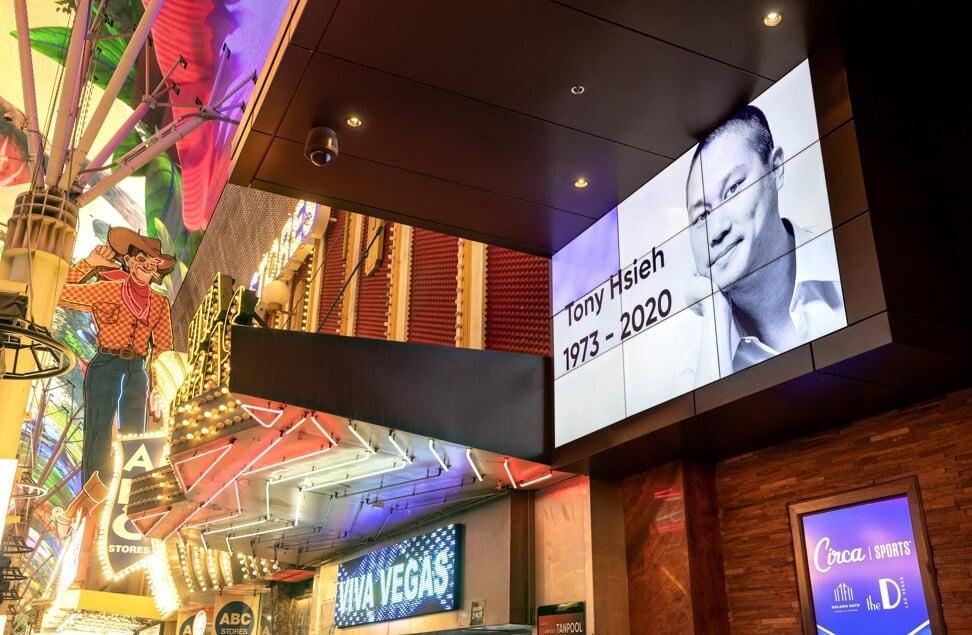
Forbes reported that friends and family had staged interventions in recent months, to little avail.
Long before Park City, Hsieh pushed out those who challenged him, said someone who was booted from his circle a few years ago. Those who remained could be codependent, financially and emotionally, she said.
One major turning point for Hsieh was a trio of suicides in 2013 and 2014 from prominent entrepreneurs in his Las Vegas community. Nellie Bowles, then a reporter at tech news site Recode, wrote that the tragedies were “sending the tight-knit community into a tailspin”.
Hsieh, who long focused on happiness, didn’t immediately address the deaths or offer many resources to the community. Instead, he told reporters like Bowles that “suicides happen anywhere. Look at the stats.”
In Park City, complaints from neighbours about the parties on his property weren’t the only obstacles Hsieh was encountering. He ran into problems with the city and temporarily shut down 10X in August, according to Sarah. A spokesman for the city’s official tourism effort said that his group never received any insights into Hsieh’s plans.
All of [10X] was in support of building the next generation of wealth to bring about world peace. [Hsieh] was up 20 hours a day thinking about it and talking about it
One part of 10X that did come to fruition were day passes that anyone could buy for US$10 – and were given away to Hsieh’s Park City crew. The passes gave access to unlimited dining that day at certain restaurants, like Riverhorse on Main, which would reserve a handful of tables for 10X customers. Riverhorse did not respond to requests for comment.
Hsieh also made friends by acting as a “guardian angel” to local businesses struggling during the pandemic, Park City mayor Andy Beerman said. The businesses haven’t been keen to talk about their Hsieh ties, though; one business owner who was said to have benefited from Hsieh’s generosity refused to comment and pointed reporters to the public relations firm representing the Hsieh family.
Some of the other projects Hsieh was exploring at the time seemed on a completely different realm.
Hsieh told Sarah in August that he wanted to bring total world peace by December 31. Then he came up with a related proposal: create an earth standard time, putting anyone who would volunteer on the same time zone.
Hsieh told Litman, the entrepreneur, that he wanted to implement a single minute of world peace.
“At one point in time the definition was finding a way to distract the world collectively for one minute in time where there was no fighting on the planet. That was the starting point,” Litman said.
“All of [10X] was in support of building the next generation of wealth to bring about world peace,” Litman added. “[Hsieh] was up 20 hours a day thinking about it and talking about it.”
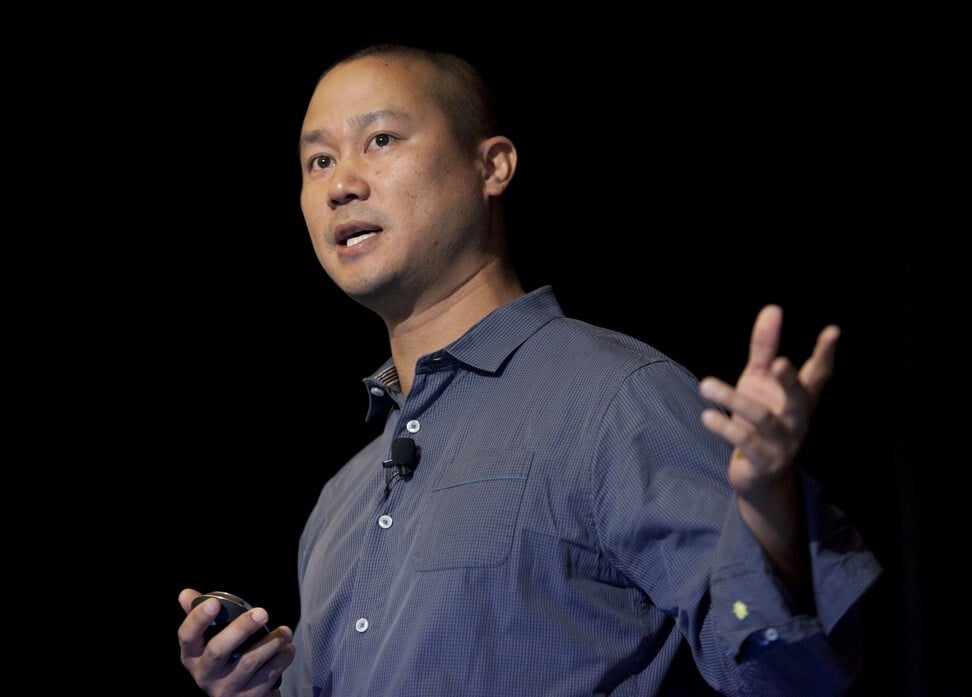
To many of Hsieh’s acquaintances, his eccentricity and out-of-the-box thinking were the marks of a genius who built an e-commerce empire and amassed a loyal following of devotees. As Hsieh’s summer in the mountains of Park City progressed, though, amid the haze of parties, drugs and bonfires, it was not always easy to be sure.
Hsieh left Park City at various points to visit girlfriend Rachael Brown at her home in New London, in the state of Connecticut, that overlooked the river. Brown, a long-time Zappos employee and a cellist, did not respond to requests for comment and has not spoken publicly since Hsieh’s death.
Immediate neighbours have been reluctant to talk, although most of them didn’t even know they lived on the same street where Hsieh was staying, until his death made the local news.
Activity at the five-bedroom Connecticut residence began to pick up in August, when the home was sold to Brown. A neighbour across the street noticed limousines parked in the driveway and three huge brown buses dropping people off at the entrance before parking elsewhere.
“All of a sudden people were there and things were going on but they kept to themselves,” said the neighbour, who asked for anonymity to discuss the sensitive situation. “I think they sent out the person with the limo to bring them food.”
Fashion in 2021: Dior or Chanel, and will Chinese be in Paris?
Regulars at New London’s The Yolk Cafe, a popular nearby breakfast spot, murmured about Hsieh’s use of whip-its and fondness for candles, which they heard about in the news.
“I didn’t know him but I had two limo customers who would order food,” Doreen Brett, the cafe’s owner, said.
Hsieh was with Brown at the Connecticut home in mid-November. In the predawn hours of November 18, he got stuck – whether by accident or choice remains unclear – in a basement shed attached to the house.
Emergency services arrived at about 3.30am, responding to reports of smoke from the back of the house, per recordings of emergency responders published by The Wall Street Journal. They found dark smoke emanating from the storage area, where Hsieh was stuck, said the New London Police Department.
The rest of the home’s occupants were out back, trying to get Hsieh to open the door.
Some emergency personnel said on the recordings that Hsieh was “trapped” and one said he was “barricaded” inside. They forced their way in and retrieved an unresponsive Hsieh. After emergency responders performed CPR, he was taken to the Lawrence + Memorial Hospital to treat “severe injuries” and later flown to the Connecticut Burn Centre at Bridgeport Hospital.
Nine days later, Hsieh died as a result of complications from accidental smoke inhalation, the office of the chief medical examiner in Connecticut told Insider.com. Autopsy records are not yet available.
The house did not appear to sustain any external damages from the fire.
Photos taken on Thursday afternoon and Sunday morning last week show a Cadillac Escalade registered to New York City’s Taxi and Limousine Commission in the driveway. On Sunday morning, the Escalade’s driver sat in the driveway with the motor running while the silhouette of a person paced inside the home. A third car, a grey Nissan SUV, joined them about three hours later while the Cadillac kept its motor running.
Hsieh’s death was ruled an accident.

